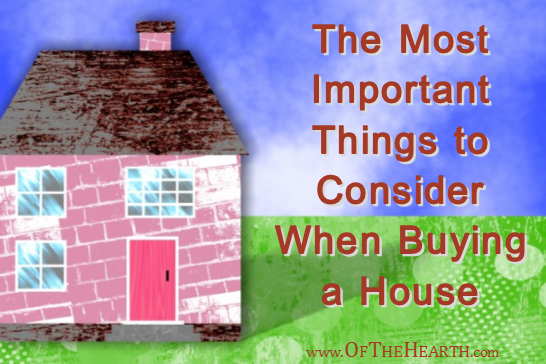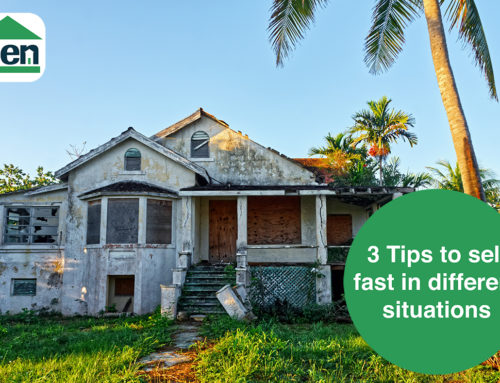When you go to view a house, you probably have your checklist of things you really want – natural light, a certain number of bedrooms, a walk-in closet. But there are some things you really need to be sure you’re looking for, so here are 10 things to look for when buying a house. We hope these are helpful in your decision making!
10 things to look for when buying a house
1. Issues With the Foundation
One of the biggest problems you can encounter as a homeowner is a cracked or shifting foundation. Repairs can be difficult, and if left undiscovered or unfixed, the issues can spread to the framework of your home. When you go to see a house, check for signs of foundation issues. A lot of problems have signs both indoors and outdoors. Look at this list here to learn some of them.
2. Shoddy Work
A lot of homeowners tend to do DIY repairs or cheap work in order to get their house to sell. While that might seem like a good fix in the short term, it can leave you with some costly repairs in the future. Check for signs of poorly-done work like uneven tiling, poor wiring, improperly installed light fixtures and so on.
3. Neglected Maintenance
Things like overgrown grass or weeds, faded or peeling paint, leaking faucets, a toilet that never stops running, burned out light bulbs and more can point to deferred maintenance – which probably means that bigger things like air filters, roof inspections and HVAC upkeep might be behind.
4. Good Insulation
Insulation is crucial to the health of a home. It makes the house more energy efficient in both hot and cold weather and serves as soundproofing for outside noise. If insulation is insufficient, damaged, shows evidence of pests nesting in it or has gotten wet, then it will need to be replaced. Aside from this, there is the possibility of dangerous chemicals like asbestos in old insulation.
5. Signs of Dampness, Mildew or Mold
Any sign of water damage, mildew or mold should concern you. You’ll want to check along walls, especially around windows and external doors. Look closely under cabinets and sinks, in the bathroom and in both the attic and basement spaces. Water damage can start as a small leak, but if left unfixed can lead to serious problems like rot and mold. Read more here about looking for water damage.
6. Condition of the Roof
The roof of a house ages and can develop leaks and holes over time. Be sure to ask questions about any past problems with the roof, as well as when it was last replaced. Want to learn more about roof problem areas? Check out this article.
7. Condition and Quality of Storage Areas
Storage areas may not be your first thing to check, but you should. Closets, attics, basements – all of them can hide potential problems like water leaks, pests and more. Not to mention the fact that knowing how big they are can impact your final decision about the house. Make sure to look in corners and along the baseboards or lower part of the wall. Depending on how much the current owner still has in closets, this can be tricky, but it’s important.
8. The Neighborhood
A lot of this will be personal preference – if you have kids, you’ll likely want a different neighborhood environment than if you’re older and looking at retirement. Whatever stage of life you’re in, though, there are some things that are consistently important, like safety and the crime levels. You can often find information about this online, and ask the current owners whether they have enjoyed living in the neighborhood. Ask about any amenities, HOA requirements and so on.
9. Size and Number of Rooms
Things like the number of bedrooms and bathrooms are usually high on the list when looking at a house. What you may forget to consider is that the other rooms matter, too. How large is the kitchen? Does it have a formal dining room, or just a kitchen/dining area combination? Is there space for a home office? Is there good storage in the master bathroom? If it’s more than one story tall, are there bathrooms on each level? Think about the flow of how it would be to move around and live in the home.
10. Quality of the Kitchen and Laundry Room
Let’s be honest: whether you cook a lot or not, whether you have a large family or it’s just you, you will always end up spending some time in both the kitchen and laundry room. Check out the appliances – and make sure you know which ones are staying with the house. These are also important rooms to inspect for water damage, leaks or signs of quick-fix DIY projects. Open cabinets, test stovetop burners and make sure that these rooms are in good shape.
We hope these 10 tips are helpful for your home search! If you are in the Indianapolis area and want to sell a house as-is, contact Ben Buys Indy Houses today!





